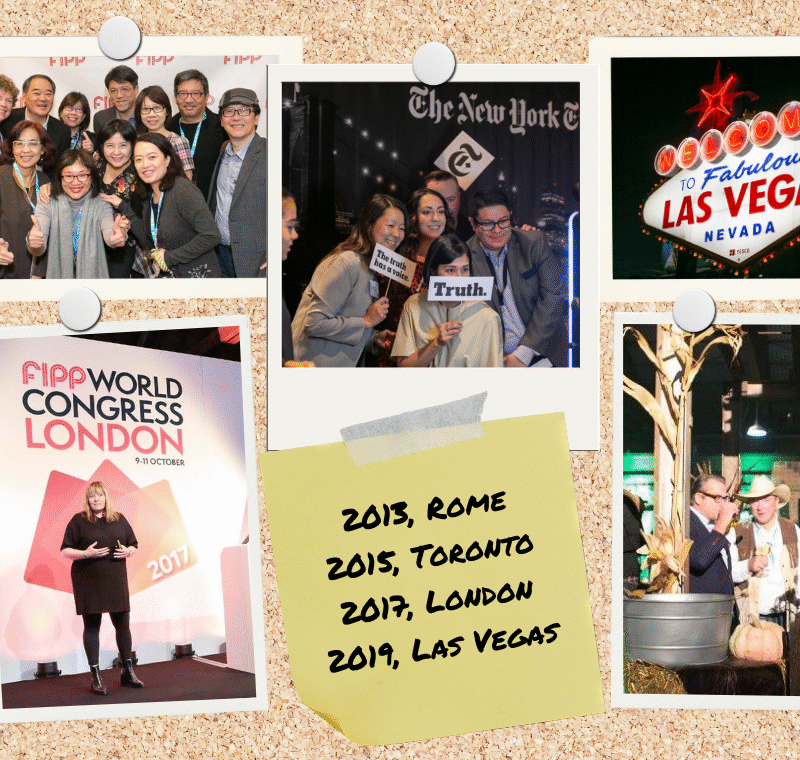Atlantic Media’s extraordinary transformation
It is a story that the company’s chief operating officer, Michael Finnegan, shared with the delegates at the FIPP World Congress in Toronto.
Finnegan kicked off his presentation by explaining that there were many things he could focus on to tell the story of Atlantic Media’s evolution – from search and social through to mobile and native advertising.
Yet instead he stressed that it is the “culture and operational structure that enables us to adapt to new challenges and keep up with the pace of modern media.”
Over the decade the company doubled its revenues and in the last two years achieved 50 per cent revenue growth. Finnegan confirmed that the company’s legacy brands had “bottomed out” and that had enabled Atlantic Media’s new products to drive new growth.
Back in 2005 Atlantic Media was three business units and six brands, Now it is four business units, 22 brands, and a digital audience of 50 million. Even print circulation has grown by 20 per cent bolstered by success of the company’s digital products.
“In 2005 almost all our revenue was print ad and circulation,” said Finnegan. “Then we made the decision to rush through new products, rather than save declining print products. We would let them decline gracefully and in a way that would protect the brand, but we made a heady push towards digital from 2007. We doubled down on events and introduced membership models to replace circulation.”
The importance of culture
Finnegan believes that it was the company’s culture that enabled them to avoid some of the pitfalls that legacy media companies had to deal with, and he outlined four core pillars of the culture – premium content, sales culture, talent and decentralisation.
“Premium content is at the heart of our DNA,” declared Finnegan. “It provides great user engagement, premium content for our ad partners and enables us to charge premium rates.”
“It also helps us differentiate ourselves from all the other digital startups. Great storytelling is a barrier to entry, it is really tough to write a story that is 18,000 words that is compelling and intelligent.”
Finnegan added that “another benefit is its ability to bolster our audience growth. He said that 30 per cent of our traffic comes from content not produced in that month. In other words long tail content based on ideas, which constantly provides returns over time.”
Finnegan then moved on to describing Atlantic Media’s sales culture – suggesting that “premium content is great but if you can’t monetise it you haven’t got a sustainable business.”
The company tripled its sales team from 2010 to 2015 – and now boasts a “fully modern digital content and native advertising sales team.” He added that “we celebrate our sales team as much as our editorial team.”
Finnegan then explained that Atlantic Media have a “relentless pursuit of talent.” He then described the Atlantic Media Fellowship program – a one year program for people straight out of school. Apparently 17 per cent of the company’s staff are current or former fellows.
Finally Finnegan discussed the company’s mantra of “innovation through decentralisation. We had a business model with a corporate core and strategy and innovation came from a few people. As the pace changed we shrunk the role of corporate and pushed strategy, innovation and execution to the business units. Everyone is accountable for growth and keeping tabs on what else is going on in the industry.”
Follow the user
Finnegan then discussed four other key elements of Atlantic Media’s strategy – follow the user, experimentation, good is good and data.
“Follow the user is a big one for us,” said Finnegan. “We want to follow the user where they go, to new devices, on portals, on platforms like Facebook Instant Articles, Apple News and Google AMP. We want to be everywhere that the audience is. We are going to pursue as many of those ways to reach consumers as possible.”
Finnegan then outlined a few of the company’s experiments including the Atlas search engine for charts, Glass, a project about the future of TV, and This – a social media platform.
He then expanded on the company’s “good is good” mantra, something he describes as really tough for a legacy publisher to get their head around. “In the digital economy you want speed to be the currency of innovation not perfection. You iterate to get to perfection, but you need to make sure that perfection is not the enemy of good.”
Finally, Finnegan gave Atlantic Media’s views on data and metrics. “In the modern world you can collect data on everything and let the data speak and inform your decision making.”
“We have constantly been able to improve our products and grow new products,’ Finnegan concluded. ‘We think it will enable us to continue our growth trend over the next ten years.”
More like this
Joe Ripp: “We are in the most exciting time for content”
Buzzfeed’s global expansion explained
Politico’s John Harris on the brand’s global expansion plans









